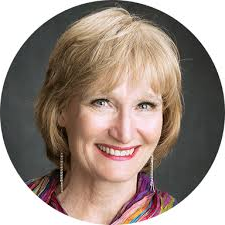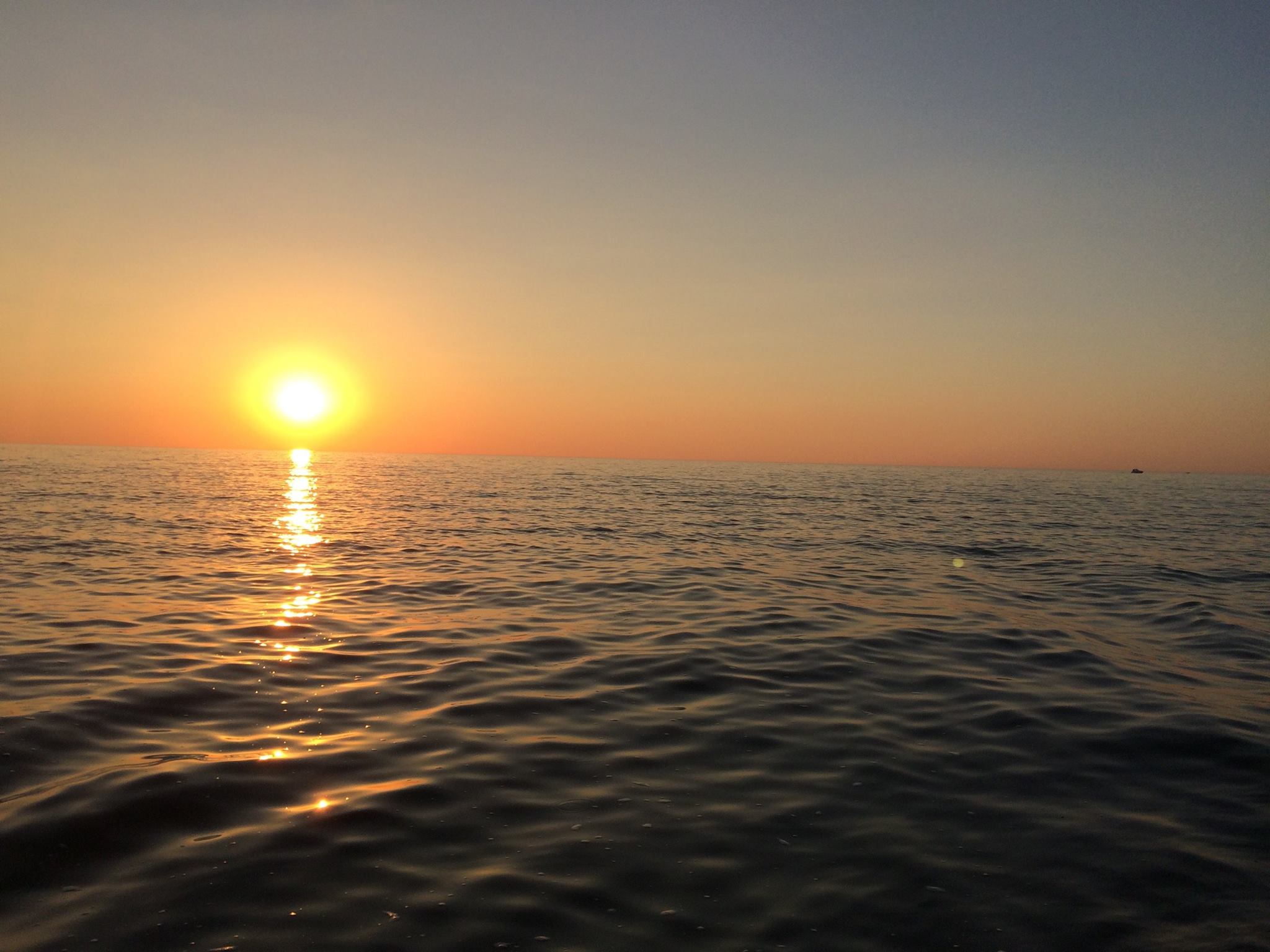Great to have you back!

1
Videos
About
Wynn-Anne Rossi is a nationally acclaimed composer with vibrant outreach throughout the world. Best known for her numerous piano publications, her repertoire also includes works for vocal groups, concert band and orchestra. Wynn-Anne has been teaching composition residencies in schools across the United States since 2003, inspiring thousands of students to write their own music. Her video series, Wednesdays with Wynn-Anne, is now available for curious musicians of all ages and levels.
Sheets
Interview
What does music mean to you personally?
My life has always been intimately linked with music. My earliest memories include beautiful moments with my mom, making up stories at the piano. That’s why I’m a composer today. Music composition is a wide open vehicle for my imagination. I have always idolized famous explorers from Lewis and Clark to the fictional captains of Star Trek. I admired their sense of risk and courage as they tackled the unknown. Through composing music, I get to explore my own unknown territory.
Do you agree that music is all about fantasy?
Music is about a lot of things, including fantasy. It always bothered me when music was defined as “the language of emotion”. It is also a language of mathematics, intellect, imagination. Fantasy is just one facet of the diamond. Music can also record personal experience, much like a photo album. Playing songs from the past can awaken memories and sensations. Music is a unifying, human experience that helps us define, yet overlook our tribal differences.
If you were not a professional musician, would would you have been?
Perhaps an architect. I have an appreciation for form. I’m curious about what makes a building or a musical composition come together as one structure despite a multitude of wandering “rooms and hallways”. I’m fascinated by symmetry and asymmetry as companions. I also recognize and even enjoy the chaos that is necessary as a final product takes shape.
The classical music audience is getting old, are you worried about your future?
Humans love the arts, so I trust they will be around as long as we are! However, I do think classical music has already moved beyond its golden age. We live in an age of fusion, and it is one of the most exciting times to be alive as a musician. Thanks to world communication, styles are blending in new and wonderful ways. In addition, self-expression for every musician is gathering new power. This challenges the highly-trained musician to be more flexible, but it also elevates the amateur. With this democratization, the best music (and musicians) will still float to the top.
What do you envision the role of classical music to be in the 21 century? Do you see that there is a transformation of this role?
Classical music is a particular cultural expression as is every other musical style. Those who feel it speaks to their souls will always be devoted fans. It will, however, have increasing competition for attention. Orchestral halls are already learning valuable lessons. In this age of fusion, it’s respectable to bring jazz and other compatible styles into performance halls. Composers like Ravel, Gershwin and Bernstein were trailblazers as they adapted contemporary sounds into their major works.
When I say that classical music is searching for new ways or that the classical music is getting a new face, what would come to your mind?
I like to dream big. I envision multi-media productions that excite all of the senses. Visuals are extremely helpful for those who are not aurally sensitive. We may figure out ways to incorporate taste, touch and the sense of smell. A whole-brained comprehensive artistic experience! There will also be those who crave LESS stimulation. Composers are already exploring pure sound that leads to improved health and happiness. It will be interesting to see how these “meditations” might manifest in a concert hall!
Do you think that the classical musician today needs to be more creative? Whats the role of creativity in the musical process for you?
You are asking a composer, so in my humble opinion, creativity is absolutely essential to music of the future. The arts have never been “fixed” and never should be. Transformation is what keeps them healthy and alive in the present. Imagination will always drive the arts.
Do you think we musicians can do something to attract young generation into the classical music concerts? How will you proceed?
As in many things, it comes down to education. Many kids have never been introduced to a classical concert, so they don’t even know if they might like it. Orchestra outreach programs in the schools can be very valuable. For over ten years, I was the resident composer for the St. Paul Chamber Orchestra outreach program called CONNECT. While I was introducing young orchestras and bands to the art of composition, performers from this same orchestra visited area schools introducing students to instruments and the beauty of a live performance. There is no data on this, but my bet is that these particular students will be more likely to take a personal interest in classical music as adults. And they will introduce it to their own children.
Tell us about your creative process. Do you have your favourite piece (written by you) How did you start working on it?
Creative process is incredibly difficult to define. It requires absolute trust. Each time I write a piece, it feels totally new to me. I take a leap into the blank page, feeling as if I know absolutely nothing. I often describe this as a dark tunnel. It is not a comfortable feeling. But then a “butterfly” flies through the tunnel and I catch it. Once the energy begins to move, it’s great fun watching the music unfold as I trust its direction. As to my favorite piece, I like to say that I haven’t yet written it! I have certain works that have been life-changing for different reasons. Every piece has its own story, not unlike human beings.
We, Moving Classics TV, love the combination of classical music with different disciplines: music and painting, music and cinematography, music and digital art, music and poetry. What do you think about these combinations?
This echoes back to my comments on whole-brain experiences. I’m totally on board with this. Each person absorbs art in an individual, unique way. The goal is to reach everyone. The more senses we awaken, the more potential for a powerful, memorable experience. This is also very important to remember when we are teaching music. Recitals can be very engaging and creative!
Can you give some advice for young people who want to discover classical music for themselves?
Learn to play an instrument! Hands-on experience always usurps mere observation or listening. I would also communicate that all classical music is not alike. You don’t have to like what other people like. There are so many types of classical music, and the trick is to find what personally resonates. Aim to discover a particular composer that excites you, then take the plunge. This will help you define your particular musical tastes and identity.
Now it is a common practice in the media to talk that the classical music is getting into the consumption business, do you agree? We are speaking about the supply and demand rules and how to sell your “product” in your case your compositions. How do you see it?
This is driven by the society in which we live. Each country will have its own model for success. Some will not succeed. If there are no active patrons and there is no designated government money, music lovers are forced to look to other ways to remain financially afloat. I understand this as a musical entrepreneur. I have a website to drive my business. I have a publisher to drive my sales. This does not conflict with my musical passion. Musicians have to pay their bills, just like everyone else.
Do you have expectations what regards your listeners, your audience?
My expectations are upon myself, not my audience. It’s important to me that my music has a positive impact. Different compositions will reach different audiences, and it’s important that I speak a musical language that is inclusive rather than exclusive. It is the responsibility of the composer to communicate something of value. However, this doesn’t simply mean pleasing people.
What projects are coming up? Do you experiment in your projects?
I have ongoing assignments from Alfred Music, my publisher. Currently, I’m working on completing a series of four piano duet books called “Jazzin’ Americana for Two”. I am always taking on new projects, both in my creative life and in my educational outreach. 2018 holds great promise! I will be working with the talented A.W.Duo on an experimental, new work for cello and piano. I also have several workshops and residencies lined up across the United States, encouraging both teachers and students to take the leap into self-expression.
Wynn-Anne Rossi
www.rossi-music.com
Wynn-Anne Rossi is a nationally acclaimed composer with vibrant outreach throughout the world. Best known for her numerous piano publications, her repertoire also includes works for vocal groups, concert band and orchestra. Wynn-Anne has been teaching composition residencies in schools across the United States since 2003, inspiring thousands of students to write their own music. Her video series, Wednesdays with Wynn-Anne, is now available for curious musicians of all ages and levels. For more information, visit www.rossi-music.com.
Copyrights © 2019 Moving Classics TV All Rights Reserved.
